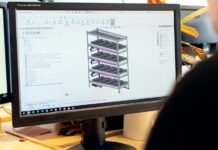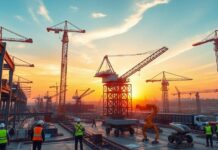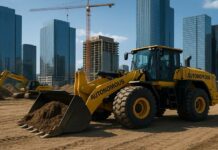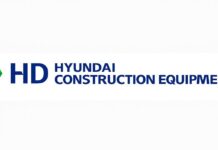A power generator is one of the essential pieces of equipment used for construction. Construction sites, especially in remote areas, lack power supply to run various appliances required to accomplish tasks. This calls for a power generator to help provide the needed electric power.
However, choosing the right generator can be daunting as you have to consider the generator’s size, amount of power supply, quietness, and fuel type, among other factors.
Read on to learn more about how to choose the best power generator for your construction project.
Consider The Fuel Type
When choosing a power generator, fuel type is one of the essential factors to consider. And there are three types of generators, which include diesel generators, gasoline generators, and solar generators. Diesel generators are the most commonly used in construction sites because they’re efficient, provide steady power, and are less flammable. Additionally, since much construction equipment uses diesel, it means that diesel will always be readily available to fuel your generator.
Gasoline generators burn cleanly, making them suitable for construction areas with emission restrictions. Gasoline fuel is cheaper than diesel, thus resulting in low energy costs. On the other hand, solar generators are the most efficient and cost-effective as they use solar panels to capture energy from the sun to power your generator. Although acquiring the best solar generator can have huge upfront costs, it’s more cost-effective in the long run as you won’t incur any fuel costs.
Choose The Right Generator Type
Construction sites use different equipment to perform various tasks. For instance, road construction equipment differs from building equipment. Many of these tools and equipment require motive power to operate. What’s more, this equipment has different power requirements. Therefore, depending on the equipment you have, you must choose the right type of generator that’s capable of easily running your tools and equipment. The different types of generators used in construction sites include high-powered, medium-powered, standby, and portable generators.
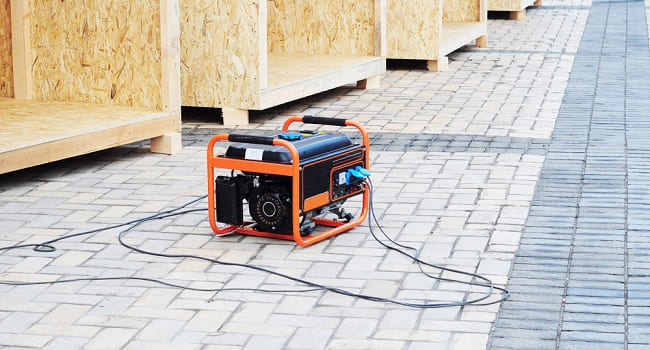
High-powered generators provide a high amount of power in extensive construction sites—for instance, road building equipment or handling equipment. Medium-powered generators produce moderate power needed for smaller construction projects like building smaller houses or roads. Standby generators provide power supply when the main generator isn’t working, or it’s under repair or maintenance.
On the other hand, portable generators are small generators used to provide power supply in different areas of construction sites. They’re mounted with small wheels for easy movement around the site.
Settle For A Clean And Quiet Generator
Generators used to be noisy and emit dirty emissions. However, technological advancement has made them quieter and cleaner than ever before. But there are different levels of quietness and cleanliness. The quieter and cleaner a generator is, the more costly it is.
Inverter generators are the quietest and cleanest, making them suitable for construction sites with sensitive equipment. This is because wave distortions can damage or shut down sensitive equipment. For extremely sensitive tools, the inverter generator is run through an inverter board to reduce noise vibration further.
These generators are also suitable for construction sites with noise restrictions, as they produce less sound than standard generators. However, inverter generators are expensive and can significantly elevate your construction budget. Fortunately, if you have conventional generators, there are certain features you can incorporate into them to reduce the level of noise.
For instance, you can use large muffles and air cleaners to suppress the noise. You can also use Idle controls to reduce the number of rotations when the generator is idle, thus helping reduce noise and fuel consumption.
Power cleanliness in generators refers to a consistent and stable power supply without hiccups. Conventional generators use regulators to control voltage levels to help maintain a stable power supply.
Settle For A Quality Generator
Before choosing a construction generator, it’s essential to check its quality to ascertain that it can meet the demands of your construction site. There are a few factors that dictate the quality of a generator.
Firstly, a quality generator must have a good engine. If a generator is well-built but doesn’t have a good engine, it’s dead effectively. Therefore, do your research and choose companies with good engine reputations.
Secondly, a quality generator should be fuel-efficient to help reduce operational costs and avoid frequent refueling. Lastly, a quality engine must be designed using quality parts. Therefore, check the durability and thickness of the generator’s components, like the fuel tank and steel frames, and ease of maintenance.
Conclusion
Choosing a power generator for your construction site can be overwhelming. This is because if you choose a small generator, you won’t have enough power for your tools while choosing a bigger generator can raise your operational costs. That’s why you should use the above tips to choose a power generator that fits your needs.






